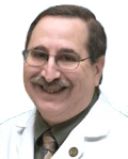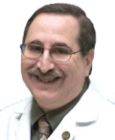Psychedelic-Assisted Therapy
Destigmatizing the Medical Use of Psychedelics
Words matter when discussing therapeutic treatment with psychedelics.
Posted March 15, 2023 Reviewed by Vanessa Lancaster
Key points
- The FDA could approve drugs like MDMA and psilocybin to treat specific psychiatric syndromes.
- Increased recreational use of these drugs is likely as more jurisdictions decriminalize them.
- Distinguishing medical use from recreational use is important, using medical terms for medical use may help.
Co-authored by Eugene Rubin, MD, Ph.D., and Charles Zorumski, MD
Psychedelic drugs such as psilocybin and 3,4 methylenedioxymethamphetamine (MDMA) can have therapeutic benefits when coupled with brief psychotherapy before and after drug administration. The Food and Drug Administration (FDA) may approve MDMA for treating post-traumatic stress disorder (PTSD), possibly as early as the end of 2023. Psilocybin, taken in supervised settings involving psychotherapy before and after drug administration, may help patients with depressive disorders and other psychiatric conditions. If ongoing studies continue supporting already published data, the FDA could evaluate the clinical use of psilocybin-assisted therapy in the future.
Some people use psilocybin (“shrooms”) or MDMA (“ecstasy”) recreationally or as part of spiritual practices. Some states and cities have decriminalized the use of psilocybin. If decriminalization becomes more widespread, recreational use will likely increase substantially.
Importance of Using Medical Language
Andrew Beswerchij and Dominic Sisti recently published an article entitled “From Underground to Mainstream: Establishing a Medical Lexicon for Psychedelic Therapy” in Frontiers in Psychiatry. In it, they discussed the importance of utilizing medical language when addressing the therapeutic use of these drugs. Both agents are likely to help treat serious disorders, and it is important to destigmatize their medical use. Using medical language will encourage better communication among patients, physicians, other healthcare providers, insurance companies, and clinical investigators.
The authors suggested referring to these agents by their chemical names: psilocybin (not mushrooms, 'shrooms, etc.) and MDMA (not ecstasy, E, X, molly, etc.). Part of the therapeutic benefit of psilocybin may result from a period of altered consciousness. They suggested avoiding terms like trip or journey and instead referring to this experience as a “therapeutic state of altered consciousness.”
If these agents are approved by the FDA and become therapeutic options that psychiatrists and other physicians can prescribe, it will be important to teach medical students and psychiatric residents about the pharmacology of these drugs and their therapeutic indications. In addition, healthcare providers will need to learn how to administer the drugs and the associated therapy.
Brain Wellness Clinics
Likely, many individuals who use these drugs recreationally or spiritually will not be the same people prescribed such agents for medical purposes. The careful use of medical terminology can help differentiate these drugs' medical and non-medical use. However, as discussed in an editorial published in JAMA Psychiatry by Anna Wexler and Dominic Sisti, “brain wellness clinics” will proliferate and likely promote the medical use of psilocybin and MDMA for a variety of non-FDA-approved conditions. To quote these authors: "With high public enthusiasm, extremely bullish investors, and hundreds of newly established brain wellness clinics, all the pieces are now in place for expansive off-label promotion of psychedelics to quickly mushroom beyond what is safe."
The Emergence of New Psychiatric Therapies
Psychiatry is in the midst of a second psychopharmacologic revolution. Recently, the FDA approved drugs with very different mechanisms of action from earlier medications. Agents such as psilocybin and MDMA will likely join the list that now includes ketamine-based drugs and neurosteroids. In addition, advances in psychotherapies and psychosocial interventions provide additional ways to reduce psychiatric symptoms.
Only a small percentage of individuals with disabling psychiatric conditions can access care. Primary care teams, in consultation with psychiatrists, are becoming increasingly involved in treating psychiatric syndromes. Reducing stigma among patients and physicians about using psychedelic drugs to treat serious psychiatric disorders will be important. Using medical terminology when discussing these medications should help to make primary care providers working in integrative care systems more comfortable coordinating care with specially trained psychiatrists providing these newly emerging therapies.
To find a therapist, visit the Psychology Today Therapy Directory.
References
Beswerchij, A. & Sisti, D. (2022 Jun 17). From underground to mainstream: establishing a medical lexicon for psychedelic therapy. Front Psychiatry. 13:870507. doi: 10.3389/fpsyt.2022.870507. eCollection 2022.
Wexler, A. & Sisti, D. (2022 Aug 1). Brain wellness "spas" - anticipating the off-label promotion of psychedelics. JAMA Psychiatry. 79(8):748-749. doi: 10.1001/jamapsychiatry.2022.1619.


